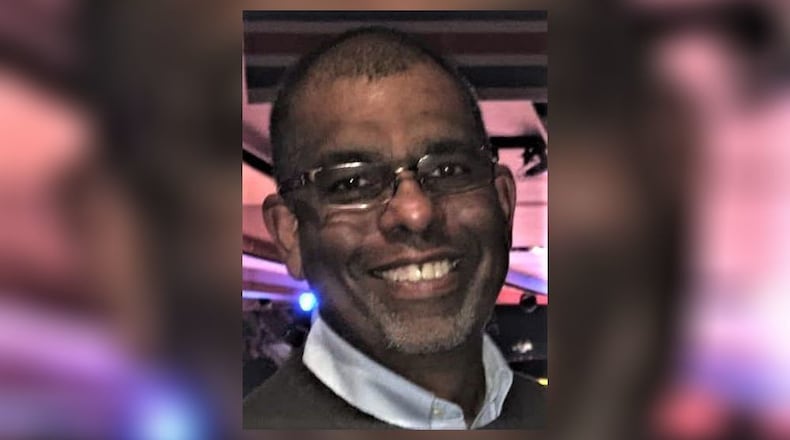Then, the holidays came, and I realized I needed to stop being self-absorbed. As much as I was hurting, my grandmother was far worse.
She was a small, stoic woman who showed her feelings as often as a tsunami struck the Great Miami River. I can’t remember one time she hugged or kissed me. I’m not saying it never happened; I just can’t remember.
But I will always recall the day of my grandfather’s funeral. She politely greeted and thanked everyone who attended the visitation, her face flashing something between a smile and a grimace.
The burial was another story.
When they lowered the casket to the ground, my grandmother finally let out the pain she wanted no one to see. She fell to her knees, sobbing uncontrollably and wailing my grandfather’s name, Herman.
I led out of the cemetery, my arm around her waist to ensure she wouldn’t collapse. Until that moment, I had never seen a person so broken.
As Christmas approached, my grandmother — I called her “Mama” — told my mother she wanted to spend the day alone. I decided to ignore her.
I knocked on her Grand Concourse apartment door, and she let me in after peering through the peephole.
“Hi Mama,” I said as cheery as sorrow would let me be.
She asked me what I was doing there and I just said, “Merry Christmas.”
She was still in her housecoat, and I wondered how many days it had been since she ventured outside. She walked into her bedroom, where letters, bills, pamphlets, and such covered the bed. Now and then, she’d pull out her box of her “papers” and look through them, for reasons that escape me.
She told me she was doing fine, which we both knew was a lie. I told her I could spend the night since I didn’t have to be at work until the next afternoon. She had an old sleeper sofa in the living room and the rails under the thin mattress always made for a miserable night’s sleep.
“OK,” she said. “But make sure you put it up before Herman gets home … "
Her voice trailed away, her face sunk, and she stared into more heartbreak.
Then, the phone rang.
I was about to leave the room when she shook her head, “no.” The short conversation ended with a simple, “OK.”
After she hung up the phone, she took a breath and said, “That was Lucille.”
My aunt Lucille and my grandmother — sisters who looked so much alike they could have passed for twins — had been estranged for a long time. They lived minutes apart but hadn’t seen each other in years because of some long-ago bickering that turned into a lifetime of enmity.
My aunt called her sister to see how she was doing, a soothing attempt not to bury the past, but compassionately reach out on Christmas Day.
I spent weeks hoping that call would result in my aunt and grandmother reconciling. I was close to both and had visions of family dinners and get-togethers with two of my favorite people.
I don’t think anything ever came of that call. For all I know, that could have been the last time they spoke. I’m fairly certain they didn’t see each other until 2001 after my mother died. Lucille, I, and others visited my grandmother, suffering from Alzheimer’s, in an area nursing home. She briefly recognized most of us there and saw her sister through the haze of the dreaded disease.
When I think about that call all those years ago, I realize that some relationships can’t be saved. But at least, for one Christmas, my aunt reached out and showed that she cared.
I told myself that was the best gift my grandmother could get.
Ray Marcano’s column appears on these pages each Sunday.
About the Author
